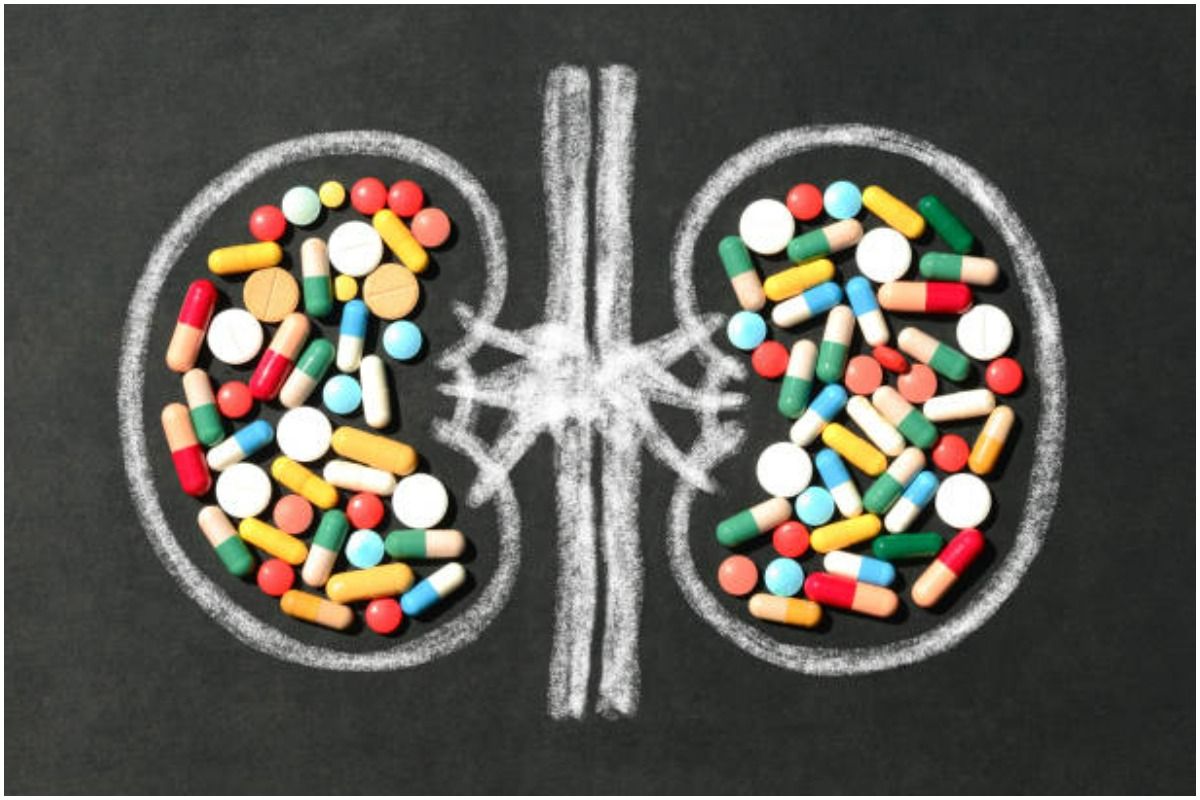World Kidney Day 2022: Young adults, children and adolescents share about 5% of the population suffering from chronic kidney disease. The 10-year survival rate in this population ranges from 70 to 85%. Despite this high survival rate, the rate of mortality is 30 times higher than healthy people of a similar age category.Also Read – World Kidney Day 2022: 6 Ways to Take Care of Kidney For Diabetes Patients
Kidney Disease in Youngsters
Hypertension and diabetes are the two most common causes of developing Chronic Kidney Disease (CKD) in adults. These two diseases are not very common in teens. However, because of the unhealthy lifestyle and poor eating habits, more youngsters are now vulnerable to these diseases resulting in an increased risk for CKD. The other causes of CKD in these patients include reflux nephropathy, autoimmune diseases, nephrotic syndrome, nephritis and urinary tract infection. Also Read – World Kidney Day 2022: From Cabbage to Cauliflower, Here Are 5 Foods to Keep Kidneys Healthy
The warning signs present in teenagers with CKD include hypertension, excessive weakness and tiredness, weight gain or retarded growth, loss of appetite, frequent headache, abdominal pain, lower back pain, unexplained low-grade fever, and cloudy and unpleasant smelling urine. The morbidity and mortality in these patients are normally due to infection and cardiovascular causes rather than renal failure itself. Also Read – World Kidney Day 2022: 8 Healthy Habits to Keep Your Kidneys Healthy
Advance stages of CKD requires dialysis and/or kidney transplant. Transplant is the best option for end stage kidney diseases. The nephrologists may advise other options such as home haemodialysis, peritoneal dialysis, in-centre dialysis, and in-centre nocturnal dialysis, which is also suitable for this age group. Dialysis is filtering the blood and removing the waste through the external machine.
The life of the youngsters considerably changes once the dialysis starts. The youngsters should ask the doctor about the activities they can continue with activities, such as playing certain sports. Girls may have irregular menstruation or not at all. There may be anger, frustration and irritability in adolescents undergoing dialysis. Several patients undergoing dialysis may require renal transplantation.
Tips to Keep Kidneys Healthy
Several measures help in maintaining the health of kidneys. Some of them are:
- Exercise: Regular exercise reduces the risk of CKD. It improves heart health and manages overall cardiovascular health. The person may walk, cycle, or run regularly to maintain a fit and healthy body.
- Monitor blood pressure: Persistent high blood pressure is a significant risk factor for kidney disease. If the high blood pressure is accompanied by obesity or diabetes, the effect on the kidney is more severe. Therefore, people should control their blood pressure to normal.
- Drink adequate fluids: Drinking sufficient water is good for kidney health. It helps to remove excess sodium and toxins from the blood.
- Maintain blood sugar: High blood sugar for a prolonged period also increases the risk of kidney damage. The kidney is under continuous stress to remove the sugar from the blood. It is essential to maintain blood sugar.
- Weight management: People who are obese or have excessive weight are at risk of developing several medical conditions such as diabetes and hypertension. Such conditions increase the risk of kidney disease. Maintaining a healthy weight lowers the risk of kidney disorder.
- Quit smoking: Smoking negatively affects the blood vessels of the body, including kidneys. It will interfere with the blood supply to the kidneys, resulting in kidney damage. Quitting smoking reduces this risk.
- Routine kidney function test: People, especially those at high risk of kidney disease, must undergo regular renal examinations. It will help in diagnosing and managing the disease at an early stage.
- Avoid taking excess over-the-counter medicines: You should not take over-the-counter drugs, such as non-steroidal anti-inflammatory drugs, regularly as they may harm the kidneys.
Effect of Dialysis And Kidney Transplant on Male Fertility
Patients with chronic kidney disease have reduced fertility. It may be due to several reasons. The level of testosterone decreases in patients with ESRD. Over 50% of the patients with CKD have hypogonadism. Studies have also reported that patients with CKD have Leydig cell suppression and reduced levels of anti-Müllerian hormone. Patients with CKD also have reduced sperm number and quality. There is a 50% reduction in sperm motility, viability, and morphology in patients on haemodialysis. Long-term dialysis reduces the testicular volume, which is progressive as the frequency of haemodialysis increases. Uraemia is the most common cause of altered sperm motility and morphology.
People with CKD and dialysis also suffer from low libido and erectile dysfunction. It may be due to a direct effect of CKD on the nervous system or the presence of underlying medical conditions such as hypertension or diabetes. Psychogenic erectile dysfunction may also occur due to anxiety and depression, and poor body image. It has been reported that even in the absence of hormonal alterations and quality of semen, men with CKD may have infertility due to erectile dysfunction alone. Kidney transplantation improves the rate of fertility by restoring hormonal balance and reducing erectile dysfunction.
(With inputs by Dr. Girish H, Consultant – Nephrology, Manipal Hospital Hebbal)


